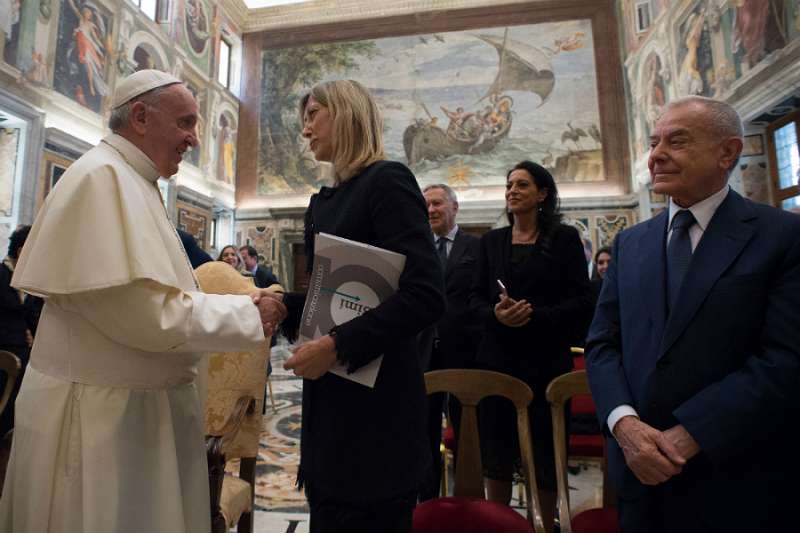Ahead the presentation of the Biagio Agnes International Journalism Award, Pope Francis advised journalists to consider of all walks of life in their work, pursue truth, and always introduce hope.
Often, he said, “the nerve centres of news production are found in large centres,” but stories worth telling exist beyond these hubs of human activity. Many of these quiet existences are proof of great “suffering and degradation.”
Francis, however, suggested that these stories also offer perspective: “other times they are stories of great solidarity that can help everyone to look at reality in a renewed way,” he said.
The pope spoke to a delegation of the award June 4 at the Vatican's Clementine Hall. The award will be presented in Sorrento June 22-24.
The award is named for Biagio Agnes, a well-known Italian journalist who was director of Italy's state broadcaster, RAI, and who died in 2011.
“By taking to heart his teaching, you all commit yourselves, first of all personally, to a communication able to place the truth before personal or corporate interests,” Francis told the journalists.
“Being a journalist relates to the formation of people, their vision of the world and their attitudes when faced with events,” he reflected.
Practicing self-discipline, the pope said, is also key “so as not to fall into the trap of logics of opposing interests or ideologies.” Journalists should not be afraid to reveal even the most difficult of truths.
“Today, in a world where everything is fast, it is increasingly urgent to appeal to the troubled and arduous law of in-depth research, comparison and, if necessary, also of remaining silent rather than harming a person or a group of people or delegitimizing an event,” he said.
While acknowledging its difficulty, “the story of a life is understood at its end, and this should help us to become courageous and prophetic,” he added.
Finally, Francis encouraged the journalists to incorporate light and hope into their work. While they shouldn’t aim to communicate news in an unrealistically positive way, he said, they should certainly be “denouncing situations of degradation and despair.”
“It is a matter of opening spaces of hope,” he said.
The pope also called for adaptation to quickly evolving technology.
“It is increasingly necessary if we wish to continue to be educators of the new generations,” Francis said.

